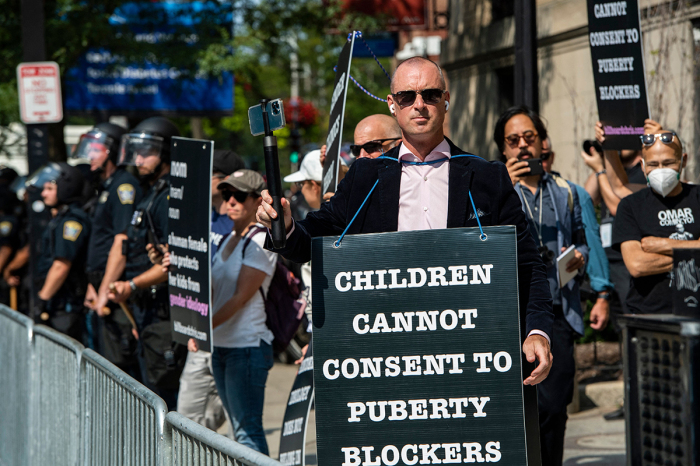Evidence for puberty blockers is 'scarce,' New Zealand's health ministry says in long-awaited report

The New Zealand Ministry of Health released a long-anticipated report this week, stating that there is limited evidence supporting the use of puberty-blocking drugs for children suffering from gender identity issues.
The ministry called for a more cautious approach to their prescription, aligning with a growing global trend towards tightening regulations on what critics had for years argued were experimental practices.
The ministry stated in a release there is "a lack of good quality evidence to back the effectiveness and safety of puberty blockers when used for this purpose."
The government agency also announced a public consultation process, inviting submissions until late January 2025 to assess whether additional safeguards should be established, potentially through amendments to the Medicines Act 1981. These safeguards could include regulatory measures to further restrict or condition the prescription of puberty blockers.
"The Ministry's assessment is that the starting point for treatment is a holistic assessment determining the full spectrum of needs a young person may have including social and mental health," the release states.
"The new precautionary approach signals the need for clinicians to exercise caution in prescribing, including that prescribing should only be initiated by clinicians who are experienced in providing gender-affirming care, and are part of an interprofessional team offering a full range of supports to young people presenting with gender identity issues."
The review surveyed over 4,000 academic papers, narrowing its focus to 30 studies.
"Evidence about the impact of GnRHa on clinical and mental health and wellbeing outcomes is scarce, with available evidence largely of poor quality," the brief states. "While there are studies on non-medical interventions that show improvements in the mental health and wellbeing of gender-dysphoric adolescents, these generally rely on small, localized cohorts, making it difficult to extrapolate to other, larger cohorts."
The ministry says it will also commission new research to investigate the long-term clinical and mental health impacts of puberty blockers.
In a position statement published along with the new evidence brief, the ministry stated that some evidence shows that bone density "appears to increase at less than the expected rate for individual stage of development" for children placed on puberty blockers, but there is "no evidence of impact on renal or liver function, the onset of diabetes, or fertility."
"Whilst there are some studies that suggest an improvement in depression, anxiety, and suicidal ideation for individuals treated with puberty blockers, the quality of the evidence is poor," the position statement reads.
"Overall, the evidence brief found significant limitations in the quality of evidence for either the benefits or risks (or lack thereof) of the use of puberty blockers. This means there is insufficient basis to say that puberty blockers are safe or reversible (or not) for use as an intervention for gender dysphoria in adolescents."
New Zealand has joined several other countries, including the United Kingdom, Sweden, Finland and France, in re-evaluating the prescription of puberty blockers amid rising concerns. In the United Kingdom, these drugs are now largely restricted to clinical trials.
In the United States, around two dozen states have taken action to restrict the prescription of puberty-blocking drugs to minors for the purpose of a so-called gender transition.
The number of adolescents prescribed puberty blockers in New Zealand has fluctuated over recent years. In 2010, around 25 individuals between the ages of 11 and 17 began treatment, rising to about 140 by 2021. In 2023, that number had decreased slightly to 113.
The Professional Association for Transgender Health Aotearoa (PATHA) welcomed the ministry's position statement while acknowledging the limitations in the quality of current research.
However, the organization doesn't appear too supportive of the ministry's plan to open a consultation process for more potential restrictions, questioning the "appropriateness of opening this consultation on a medical matter to the wider public, particularly when the matter of gender-affirming care has become highly politicized and subject to disinformation." PATHA President Jennifer Shields believes the guidance reinforces existing best practices.
"PATHA cautions against further restrictions," the organization states.
The report also received attention from Genspect NZ, whose spokesperson Jan Rivers, criticized the decision to continue allowing the prescription of puberty blockers.
Rivers argued in a statement that the report's findings pointed to significant gaps in scientific knowledge, which should have prompted more robust restrictions.
"The Ministry's decision to entrust this treatment to the very clinicians who have misrepresented the evidence for years raises serious concerns about accountability and patient safety," said Rivers.
The evidence brief, which included an addendum reviewing 160 articles published between October 2023 and May 2024, aimed to provide a more comprehensive understanding of puberty blockers' impact on clinical and mental health outcomes.





























